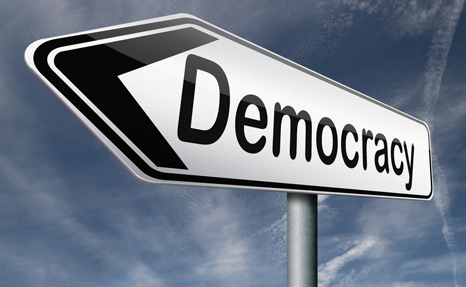The Democratic Ethos and the Rules of the Political Game
As Israel celebrates its 74th birthday - what must be done to bolster social solidarity? Education, education and education!

Shutterstock
Israel is celebrating its 74th birthday. As on every birthday, this is a good opportunity for reckoning and soul searching. Clearly, we have much to be proud of. According to the 2021 Democracy Index compiled by the Viterbi Family Center for Public Opinion and Policy Research at the Israel Democracy Institute, most Israelis feel a sense of pride and belonging to their country. Nevertheless, social solidarity among various population groups is being eroded. There is increasing polarization between the sectors, as evidenced on social networks and in the hotheaded political discourse that sometimes goes as far as to stifle or obliterate rival positions and identities. These gaps came to the fore during the COVID-19 pandemic, which, alongside welcome manifestations of social solidarity and community spirit, was also marked by estrangement and hostility between different groups, especially towards the ultra-Orthodox. Precisely a year ago, the violence in mixed cities erupted, exposing the tension among their residents. Let's hope that we reached rock-bottom, and have now moved forward. but it is hard to know whether these were one-time incidents, or whether we are on the verge of similar events.
On all these fronts, we see the urgent need to bolster social solidarity among the various sectors of the population. As we celebrate 74 years of independence today, we realize that there is a need to operate on several levels in the coming years in order to respond effectively to this pressing need.
First and foremost, in order to address the sense of alienation among various groups, we must work on the educational front, with activities aimed at inculcating deep and systematic education for democracy and civics in all sectors. The Education Ministry’s has acknowledged the importance of education for democracy. However, so far, in practice- the topic is low on the education system's agenda. Education to instill universal values such as equality, liberty, and human rights, and the formulation of a shared democratic ethos that transcends the individual identity of each group, is not part of the curriculum of each and every Israeli student. Since encounters with members of other sectors are not part of the core curriculum, but rather – only take place as the result of a private initiative by a school or local authority, pupils can complete their secondary education without ever having come into contact with a secular or religious, Jewish or Arab, peer. The Education Ministry recently set up a committee to deal with the topic of education for a "shared society." If this committee succeeds in developing an across-the-board program for all ages and which is expressed in all school subjects, that includes education for democratic values and acquaintance with all the different groups in society, we will be able to cut back the current demonstrations of hatred for one another.
We should note that on the socioeconomic front as well, the recently launched Government’s five-year plan with a total budget of 30 billion shekels, aimed at narrowing the gaps between Jewish and Arab citizens, stipulates that the Ministry of Education's cultivation of Arab identity is one way to reduce these gaps. This is based on the recognition that education on the community’s identity and history, alongside education on the history of other groups in society, is essential for promoting and strengthening the backbone of society. Here too, what remains to be dome is to translate all this into an actual curriculum.
But we must not content ourselves with principles of identity and value-grounded education as a means to further social solidarity. In the legal and political arenas as well, we must strengthen government institutions to express broad civic consensus on the reciprocal relations between our judicial and political systems, and thus promote social solidarity, or at least provide a common basis for discussion, in which we agree about the rules of the game. Working towards such consensus requires a comprehensive and in-depth discussion by all groups in society, on what Israel’s Basic Laws—a work still in progress—should look like. As a first step, it is crucial to make progress on the Basic Law: Legislation, which will precisely define these rules of the game. But to ensure that the Basic Laws will indeed institutionalize these rules and not just generate more gaps and disagreements, we must conduct an extensive discussion, and do our very best to reach the broadest possible consensus.
Once we take steps to reduce gaps, to promote education for democracy, and to define the rules of the political and judicial game, we will be able to feel confident that we are making strong strides towards future birthdays. Even if this change requires deep-seated and complex processes that cannot reach full fruition by our 75th birthday, we will still have 26 years in which to make sure that we can all be very proud when we celebrate our first century of statehood.
The article was published in the Times of Israel.
